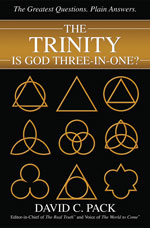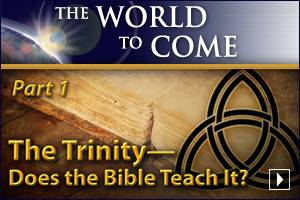At a glance, these two chapters appear to contradict each other. However, they actually complement each other.
Matthew 1 clearly explains that Joseph is Mary’s husband. Matthew recorded this for legal purposes, to show the Jews that Christ was the Messiah. It was the custom of the Jews to trace and record the father’s descent. The Jews simply saw Christ as legally Joseph’s Son (Jn. 6:42).
Joseph’s lineage was also given to show that Jesus was, in fact, born of a virgin. If Joseph had been Christ’s natural father, then Christ could never have sat on the throne of David, because of a curse God placed on one of Joseph’s ancestors.
This ancestor, Jechonias, is mentioned in Matthew 1:11-12. He is also referred to as Coniah in Jeremiah 22:24-30. Verse 30 states, “Thus says the Lord, Write you this man childless, a man that shall not prosper in his days: for no man of his seed shall prosper, sitting upon the throne of David, and ruling any more in Judah.” This man was so evil, that God cursed him and his descendants. Jeconiah (as his name is spelled in the Old Testament) did go on to have children (I Chron. 3:17). But, this curse was fulfilled because none of his children went on to rule from the throne of David.
So how could Christ, a descendant of David, qualify to rule from the throne?
This is how Luke 3 complements the Matthew account. Luke records Mary’s genealogy. According to Jewish tradition, in marriage, Mary’s genealogy was placed in her husband’s name. The Greek simply records that Joseph was “of Heli” (Luke 3:23). But since Jacob was Joseph’s father (Matt. 1:16), Joseph was the son-in-law of Heli.
Mary’s lineage did not have this curse as Joseph’s did. And Mary descended from Nathan—one of David’s sons! (see Luke 3:31). God honored Nathan, and made him the ancestor to the promised King—Jesus Christ—who would sit on David’s throne forever (Luke 1:31-33). This fulfills God’s promise of establishing David’s throne for eternity!
According to Israel’s law, if a daughter were the only heir to the father, she would inherit all his possessions, inheritance and rights—but only if she married within her tribe (Num. 27:1-8; 36:6-8). Since Mary had no brothers who could be heirs to her father, she was able to transmit David’s royal inheritance—and the right to the throne—to her husband upon marriage. This made Joseph heir to Heli, giving him the right to David’s throne. This inheritance was then passed to Christ.
The genealogies in Matthew and Luke were both recorded to show Christ’s right to the throne. Matthew’s account showed that through Joseph’s genealogy, Christ was a legal descendant of Jeconiah (Coniah), but could not sit on and rule from the throne because of the curse. This account also proved how Christ was born of a virgin woman, because the curse would have passed onto Christ if Joseph were, in fact, His natural father. Of course, Christ was really the Son of God—begotten by the Holy Spirit!
Luke’s account showed that through Mary’s genealogy, Jesus was a descendant of Nathan—David’s son. This allowed the inheritance to pass to Joseph, who in turn passed it onto Christ.


















